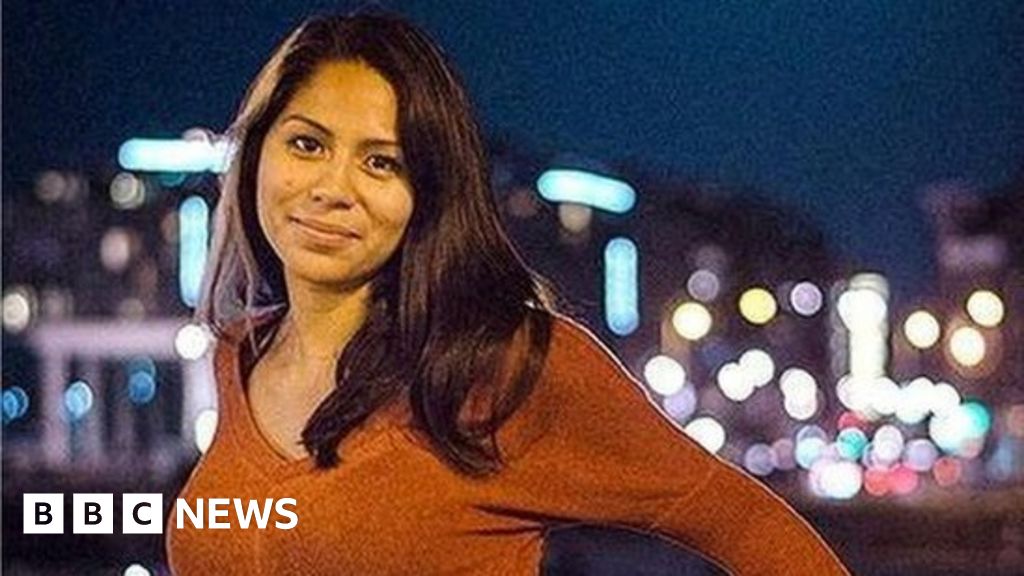US Supreme Court Wary Of Removing Tech Firms' Legal Shield In Google Case

The family of Nohemi Gonzalez, who was killed by Islamic State militants, argued that Google is liable for recommending content created by the terrorist group to YouTube users
US Supreme Court justices sounded wary on Tuesday of tinkering with a legal shield for social media firms in a case that could reshape the internet.
It pits the family of Nohemi Gonzalez, 23, who was shot by Islamic State gunmen in Paris in 2015, against YouTube owner Google.
They accuse the internet giant of aiding and abetting the terrorist group by recommending its videos to users.
Google argued it is not liable, citing a decades-old law.
The statute - Section 230 of the Communications Decency Act - protects internet companies from being held responsible over content posted by third parties on their platforms.
The 1996 law also allows companies to remove content deemed to be in violation of the platform's rules.
On Tuesday, the Supreme Court justices heard nearly three hours of arguments from lawyers representing US officials, Google and Ms Gonzalez's family.
The case marks the first time the Supreme Court has been asked to define the scope of Section 230 and determine whether platforms like YouTube, Facebook and Twitter are protected when their algorithms direct users to certain information.
During the hearing, justices noted that the current landscape of the internet had vastly changed since the law was first enacted 27 years ago.
Justices also expressed concern whether a ruling in favour of Ms Gonzalez's family could open the door to a deluge of litigation against tech companies.
Image source, Reuters
Nohemi Gonzalez, 23, died in terror attacks in Paris in 2015
"You are creating a world of lawsuits," Justice Elena Kagan, a liberal, said. "Really anytime you have content, you also have these presentational and prioritisation choices that can be subject to suit."
Two other justices, Samuel Alito, a conservative, and Ketanji Brown Jackson, a liberal, acknowledged they were confused by arguments made by a counsel for the Gonzalez family.
Justice Brett Kavanaugh, a conservative, expressed concern that any ruling to limit the legal shield for internet firms "would really crash the digital economy".
Ms Gonzalez's family first sued Google in 2016, arguing the tech giant had violated federal anti-terrorism laws by recommending videos posted by the Islamic State to its users.
Two lower courts have found in favour of Google, ruling the tech giant was protected under Section 230.
The Supreme Court is expected to release a decision on the case by end of June.
On Wednesday, the justices will hear a similar case on the question of whether Twitter aided terrorism by allowing the Islamic State to use its platform.
From Chip War To Cloud War: The Next Frontier In Global Tech Competition
The global chip war, characterized by intense competition among nations and corporations for supremacy in semiconductor ... Read more
The High Stakes Of Tech Regulation: Security Risks And Market Dynamics
The influence of tech giants in the global economy continues to grow, raising crucial questions about how to balance sec... Read more
The Tyranny Of Instagram Interiors: Why It's Time To Break Free From Algorithm-Driven Aesthetics
Instagram has become a dominant force in shaping interior design trends, offering a seemingly endless stream of inspirat... Read more
The Data Crunch In AI: Strategies For Sustainability
Exploring solutions to the imminent exhaustion of internet data for AI training.As the artificial intelligence (AI) indu... Read more
Google Abandons Four-Year Effort To Remove Cookies From Chrome Browser
After four years of dedicated effort, Google has decided to abandon its plan to remove third-party cookies from its Chro... Read more
LinkedIn Embraces AI And Gamification To Drive User Engagement And Revenue
In an effort to tackle slowing revenue growth and enhance user engagement, LinkedIn is turning to artificial intelligenc... Read more

